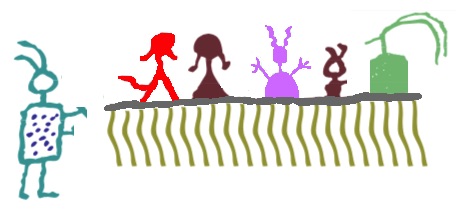
Years ago, I was a part of an online community for humanitarian aid and development workers. It wasn’t a group for the sharing of best practices or professional development. It was a group for venting and kvetching.
The group didn’t last long in that form – as the group became more and more popular and new members came in, venting started to be frowned on, because of the expectation of such workers to always be positive took over – as it always does in the offline world. The snarky commenters were shamed into silence and the group became yet another boring, rarely-controversial discussion group for best practices and where to find jobs and funding.
One of my favorite times on the group were when conversations would break out about eyebrow-raising comments that came from funders. I loved the comments so much, I saved many of them. I just found them as I was cleaning out a hard drive and decided to share my favorites. No actual humanitarian groups or donors are named here.
These are reported to be actual comments humanitarian workers have gotten from foreign funders:
For the household disinfection kit you are proposing, could you please explain the purpose of the mop? I mean, I know people use it to clean their house, but could you write a justification to that effect?
Email conversation:
Funder: “Hey, can you include some photos of children. They usually look good for fundraising”.
Agency: “No. I cannot.”
Funder: “Why not?”
Agency “Because the project is NOT about children”.
Funder: “When refurbishing the health facility, ensure that a maximum of 2 coats of paint is used”.
After sending a very long and detailed report (according to the donor’s format and per their request), including photos showing the progress of each activity, I got this email response: “Hi. Can you give me some quick updates on the project?”
Funder, regarding the alphabetization component of a rural development program: “Why would women living in the desert need to learn how to read and write anyway?”
Funder: “We don’t understand why you want to do contingency activities due to increased fighting. Could you just solve the conflict?”
Funder: “Why do they need a gravity-fed spring water system? Don’t they have normal tap water?”
Funder said they would rather spend $200 US per day renting cars for a five-year project rather than actually buying cars, which would be far cheaper, “because we don’t support the purchase of assets.”
Funder, at our first meeting: “I thought you would be a man.”
I submitted a very long, detailed research report for a donor. Got it returned with feedback. Throughout the 120-page report there is a comment from the funder, stating “you should mention xyz government and UN report here.” The comments were given at least 20-30 times, and the comments got angrier and angrier throughout the report because we’d missed such an important document.
Me in follow-up call with the donor: “I have searched all of the documents you sent that you wanted us to include and the Internet, I can’t find xyz report.”
Donor: “It hasn’t been released yet.”
Me: “errrrmmmm… Could you send me a copy? That way I would be able to mention its contents” (and actually know it exists which obviously I didn’t before).
Donor: “I don’t have a copy.”
Me: “errmmmmm… have you even read it?”
Donor: “No, I just heard about it.”
Funder: “So are you actually a spy for the British Government?”
Worker: (nervous, confused) “No, I am sure my Government considers me far too troublesome to employ” (i.e. sweary with an inability to toe the line), “Why?”
Funder: “How else would a woman end up working in Mine Action here?”
Donor: “We are paid for a children’s rights project. We cant support you in a nutritional crisis.”
Had a potential donor call me at 3 AM local time, when I was helping with first response after a disaster, to say that they had decided that they wanted their aid to go to providing shelter to orphans and could my organization do that? At 3 AM, I had to explain that nobody knew which children were orphans as yet because they were still determining who had died, and that the first option would be to reunite children with extended family members rather than create a separate facility. They were noticeably displeased during this call. I clearly did not understand their humanitarian impulse to help ORPHANS. They didn’t give us the money.
Funder: “These photos don’t show a reality that would reflect the need for the kind of assistance you’re asking for. Do you have photos that more obviously show the effects of food insecurity and mass migration?”
Many words for: put in images of starving children 
As for myself, I had to help a colleague explain to the representative of a very large, well-known tech agency that Africa is not a country and that not everyone spoke English there.
Also see:
- If nonprofits were brutally honest with funders.
- What funding volunteer engagement looks like.
- Charity isn’t enough.
- Corporate volunteers can be a burden for nonprofits.
- Corporate Volunteer Programs: What Do Nonprofits Want From Them?
- Humanitarians explain their jobs – badly.

If you have benefited from this blog, my other blogs, or other parts of my web site and would like to support the time that went into researching information, developing material, preparing articles, updating pages, etc. (I receive no funding for this work), here is how you can help.
